Omar (10), who was injured in an air strike that killed several members of his family, at a make-shift hospital in eastern Ghouta. Photograph: Amer Almohibany/AFP/Getty
Article initially published in The Irish Times on June 26, 2018 and written by Annie Sparrow.
This week Ireland takes over leadership of the international donor group that supports the United Nations Office for the Co-ordination of Humanitarian Affairs (OCHA). OCHA manages humanitarian crises, determines the global humanitarian budget ($22.5 billion in 2018), and allocates funds from donor governments. One of its biggest challenges is Syria. Arguably the world’s worst humanitarian crisis, it is unquestionably the most expensive, soaking up more than one-third of donor funds.
Since 2012, the UN-led humanitarian response in Syria has cost more than $32 billion. Ireland has sent more than €100 million. In 2018, OCHA’s forecast is $3.5 billion for Syria alone. The international community has been throwing money at the problem, without adequate regard for how the money is spent.
Providing humanitarian relief during civil wars is difficult – especially in Syria, where the government’s military strategy relies on attacking civilians in opposition areas to make life there unbearable. Since getting aid to those in greatest need in those areas contradicts the Assad government’s goal of maximising civilian suffering, Damascus has continued to do everything it can to obstruct relief. It asserts sovereignty at the diplomatic level to control the process and turns people’s need for healthcare into a weapon against them by violently depriving them of it through the targeting of doctors, hospitals and ambulances.
The conflict and the humanitarian crisis are the result of Assad’s violent repression of civilians seeking basic human rights. In response, in April 2011, many governments individually imposed sanctions. As Assad’s atrocities escalated, they tightened these sanctions. Recently, Tánaiste Simon Coveney stated, “Ireland supports the EU sanctions targeting the Assad regime and its supporters, and will continue to do so as long as repression continues.”
Humanitarian crisis
Judging by the ongoing humanitarian crisis, sanctions appear to have been unsuccessful in curbing Assad’s atrocities. The Assad government even takes the position that the sanctions have hurt the humanitarian response. Neither is a reason to lift sanctions. Why not?
The Assad regime’s brutality reflects its willingness to impose any price to survive. Financial support from Russia and Iran offset the economic impact of the sanctions, while Russia vetoed efforts to impose tougher global sanctions through the UN Security Council.
But a big part of the blame lies with the UN-led response. OCHA’s mandate – to deliver aid “in accordance with the principles of humanity, neutrality and impartiality” – qualifies that imperative by giving the member state in question full control. Having agreed to base operations in Damascus, instead of joining cross-border efforts from neighbouring countries which successfully controlled a polio epidemic and still provide aid to millions of civilians in northern Syria, OCHA allowed its ability to mitigate suffering to be held hostage by the Syrian government.
:quality(70)/cloudfront-eu-central-1.images.arcpublishing.com/irishtimes/4OMVXJYMJRG7MQOME2DCZUMXNQ.jpg)
My research, provided to the Oireachtas Committee on Foreign Affairs on May 10th, 2018, shows the Assad regime has co-opted billions of aid dollars, through the Syrian Arab Red Crescent, a regime-controlled agency managed by the intelligence forces, and “national NGOs” listed by the ministry of foreign affairs, really shell companies disguised as charities owned by Assad’s family and friends. As I told the committee, among these is Al Cham, an implementing partner for several UN agencies, whose head, Dr Al-Hajjaj al-Sharaa, is the director of the department of preparedness at the ministry of health, which systematically removes all life-saving aid from convoys going to areas besieged by its forces.
Killing machine
Furthermore, far from hurting the humanitarian response, the regime uses the lack of UN global sanctions to bypass the sanctions imposed by individual countries, funnelling donor funds to the same individuals and entities targeted. For example, since 2013, the World Health Organisation (WHO) has been buying blood bags, transfusion equipment and screening kits for blood-borne diseases for the National Blood Bank, which is controlled by the ministry of defence, the same ministry that systematically kills doctors, attacks hospitals, and destroys public-health infrastructure in opposition-held areas inhabited by millions of civilians. In effect, WHO is subsidising Assad’s killing machine, bolstering the forces that are responsible for the severe deprivation that the humanitarian effort pledged to alleviate.
WHO is subsidising Assad’s killing machine, bolstering the forces responsible for the severe deprivation the humanitarian effort pledged to alleviate
Ciaran Cannon, Minister of State with Responsibility for Humanitarian Affairs, promises, “We will support OCHA to lead an effective and principled global humanitarian response, including inside Syria.” Will Ireland avail of the opportunity this leadership role provides to ensure that the multibillion-dollar humanitarian effort is no longer manipulated by the Assad regime but instead reaches those most in need?
Getting this right is not only essential for the ongoing humanitarian effort but for future reconstruction. The Assad government, backed by Russia, is actively soliciting for funds right now. Because the Syrian government has got away with diverting billions in relief, there’s every reason to believe the reconstruction aid will go the same way, lining the same pockets and bolstering the government’s repression. As Ireland competes with Norway and Canada for a seat on the UN Security Council in 2020 with Bono’s help, they should all be thinking about this future potential assistance to Syria as much as today’s humanitarian support.
Read full article on irishtimes.com


Recent Comments